Aside from China and India, the Philippines is one of the biggest sources of migrant labour serving the global economy. Today, roughly 10-11 percent of the total Filipino population is either working or living outside the Philippines. The bulk of these Overseas Foreign Workers (OFWs) are stationed in the Middle East and other global labour hubs. Saudi Arabia, the United Arab Emirates, and Hong Kong are the top three destinations of newly deployed Filipino labour migrants. A significant portion leave the Philippines to work in gendered occupations, such as nursing, domestic work, and entertainment. Indeed, women constitute the majority of newly hired OFWs, with more than half of Filipina migrants working as household service workers or performing other "3-D" (dirty, difficult and dangerous) jobs. Today, as nearly 4,000 workers leave the Philippines each day, state-sponsored migration has proven quite lucrative for the Philippine state and remittances remain a catalyst of economic growth. The Central Bank of the Philippines reported that total remittances received from OFWs through official banking channels reached an all-time high of $18.7bn in 2010, a considerable increase from the $7.5bn reported in 2003. Remittances are the largest single contribution - roughly 10 percent - to the country’s GDP. Many Filipinos migrate because they are able to earn higher wages abroad. However, migrant workers enter receiving countries as non-citizens, performing work that is largely considered unskilled. Those with precarious "visitor" status are compelled to endure exploitative working conditions under the threat of deportation or sudden contractual termination. Filipinos, along with other migrant workers, are often the first to lose to their jobs in times of economic instability and are rarely afforded the opportunity to attain higher-status jobs. Considering the Philippines' external debt of more than $70bn and public debt exceeding 50 percent of GDP, it is easy to understand why the country praises OFWs for their sense of national duty. OFWs are often branded "bagong bayani", the modern-day heroes of the Philippines. The Philippines Overseas Employment Agency has enacted several provisions to counter illegal recruitment, trafficking, illegal fees, job scams, and overcharging. Minimum wages and benefits have been standardised in contracts, and recruiters are now held jointly accountable for migrants’ welfare with foreign employers. Yet despite the regulations, OFWs' safety and protection are not guaranteed. Ultimately, migrants and the state lack the fundamental ability to hold foreign employers and labour brokers accountable, as the state has no jurisdiction abroad. For migrants, the lack of jurisdiction in foreign countries is compounded by a largely unfair, ineffective, and unreliable domestic legal system. An owner of a Filipino-run agency based in Hong Kong said of a potential domestic worker: "She is so desperate to leave the Philippines… as long as she has a place to sleep, if she’s already there you can do whatever you want… in other words, you are the boss." In a state where nearly 33 percent live under the poverty line, 17.4 percent of youth are unemployed, and 42 percent experience vulnerable and under-employment, the impetus to migrate for a better job and a better life remains strong. |
View As Slideshow >>
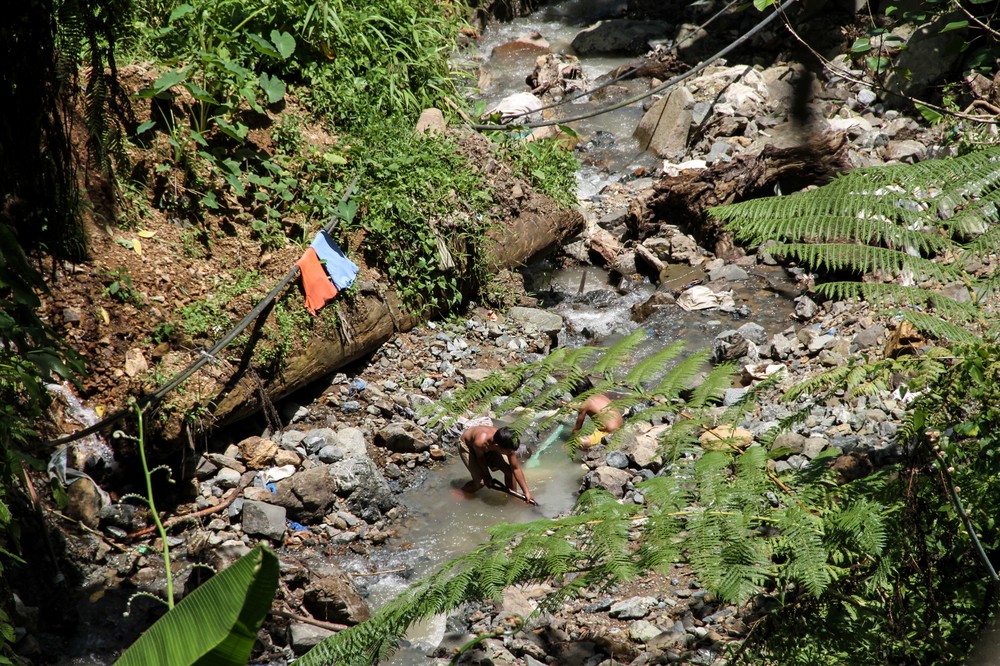
Tanya Bindra /Al Jazeera
Children search for gold left over from small-scale mining projects in the Compostela Valley, located in the Davao Region of Mindanao in the southern Philippines. About one-third of Filipinos live under the poverty line, and many experience underemployment.

Tanya Bindra /Al Jazeera
A young girl returns home near one of the many factories that are part of the Cavite Export Processing Zone, 30km south of the Philippines' capital, Manila. Lack of opportunity at home has led about one in 10 Filipinos to either work or live outside the country.

Tanya Bindra /Al Jazeera
Outside of Manila, a piece of tarp proclaiming "No Time for Love" functions as a wall in one family's home. About 4,000 Filipinos leave the country each day to work abroad.
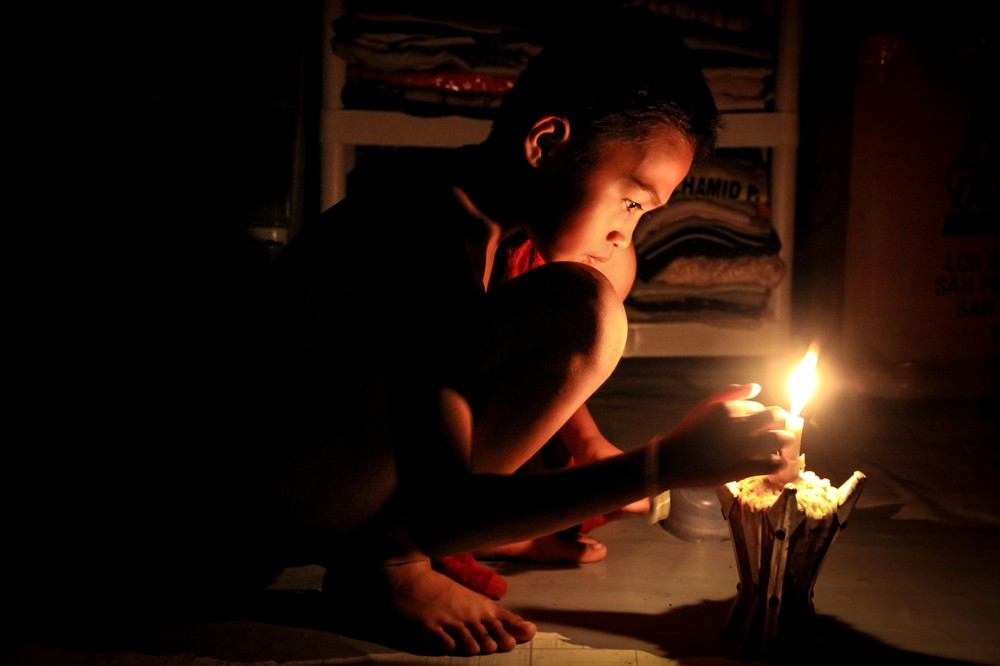
Tanya Bindra /Al Jazeera
A boy lights a candle in Culiot, a neighbourhood in northern Manila that rarely has access to power. Many illegal recruitment agencies scout out young women here to work as domestic workers.

Tanya Bindra /Al Jazeera
A newspaper ad promotes domestic helper positions in Hong Kong, calling it the "stepping stone to Canada". Many jobs in Hong Kong and Singapore are described as tickets to Canada, Australia and Europe, as workers find it easier to receive a contract in countries with lower salaries for a few years before attempting to land a job in countries that offer better pay.

Tanya Bindra /Al Jazeera
Potential domestic workers are photographed with identifying numbers and hands clasped at a recruitment agency. Recruiters market workers as submissive and industrious. Domestic workers abroad are especially at risk of isolation, sexual assault and abuse as their ability to work is tied to their employer, whom they are often required to live with.

Tanya Bindra /Al Jazeera
The faces of deployed domestic workers decorate the wall at a recruitment agency in Cotabato City in Mindanao. Many Muslim employers in the Middle East and Indonesia prefer to employ ethnic Moro women, who are also Muslim in faith.
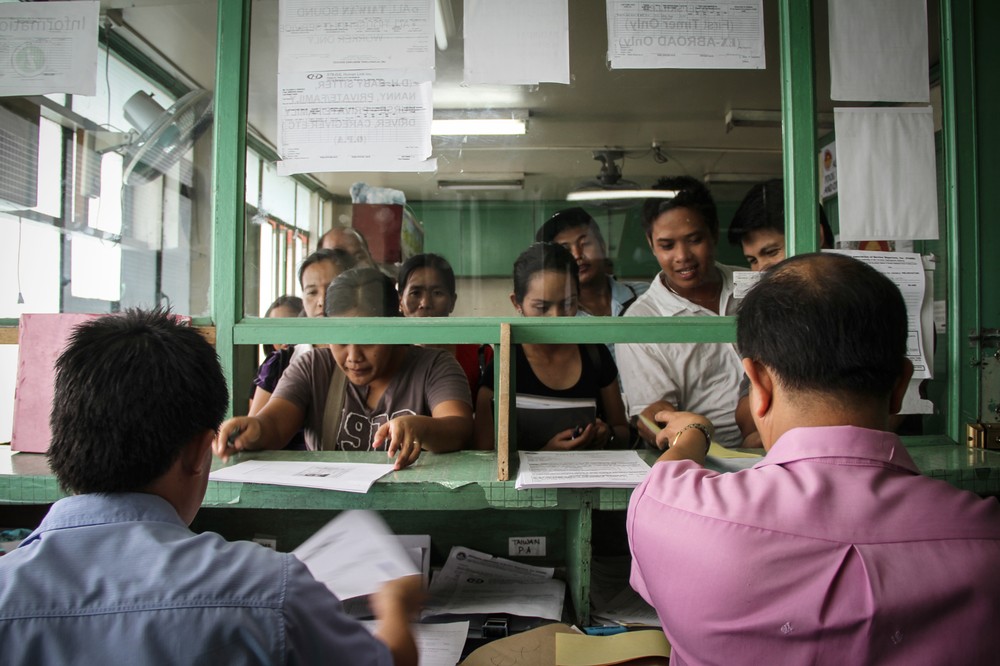
Tanya Bindra /Al Jazeera
Soon-to-be workers register their papers at a PDOS (pre-departure orientation session) that is required by the Philippine state. The Philippines Overseas Employment Agency promotes and monitors the overseas employment of Filipinos by directly engaging in the processes of training, recruitment and deployment.
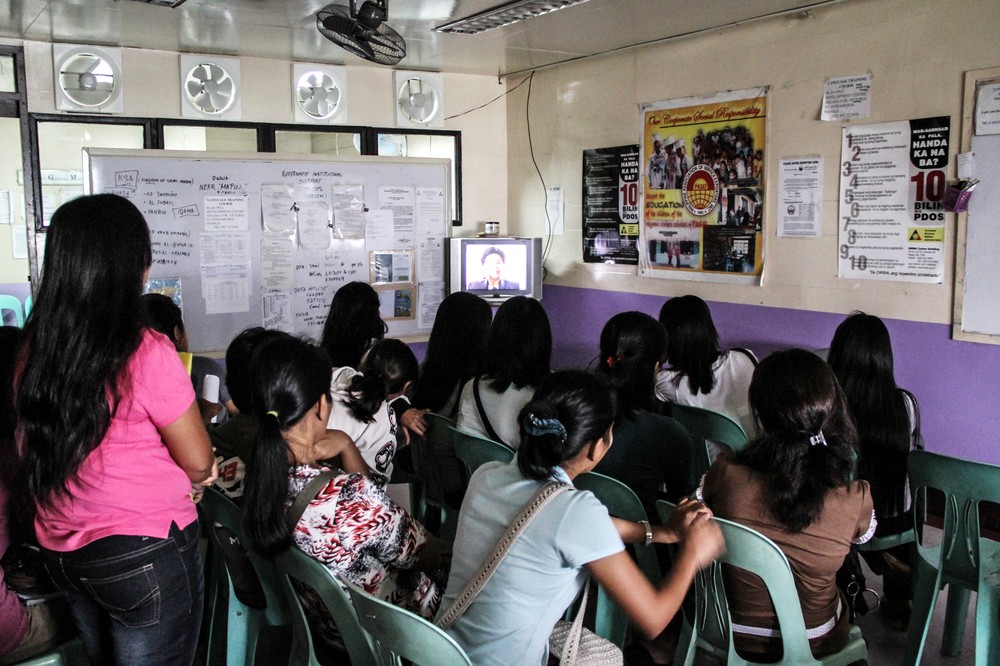
Tanya Bindra /Al Jazeera
During a PDOS for women who will be domestic workers in the Middle East, a video on self-defence is presented after a discussion on work-appropriate clothes and demeanor. PDOS seminars use the rhetoric of sacrifice, encouraging participants to regularly send money back home.

Tanya Bindra /Al Jazeera
Shown here en route from Manila to Hong Kong, most of the travellers are first-time domestic workers. Money sent home from abroad accounts for roughly 10 percent of the Philippines' GDP.

Tanya Bindra /Al Jazeera
Above, the contract of a worker who worked in Doha, Qatar. She later returned to the Philippines after her contract and working rights were violated. Many migrants pay unusually high recruitment fees or engage in labour that was not described in their contract, and some even endure slave-like conditions. Some are reluctant to report cases of malpractice, as they are afraid of losing their jobs and the prospect of returning home without repaying their debts.
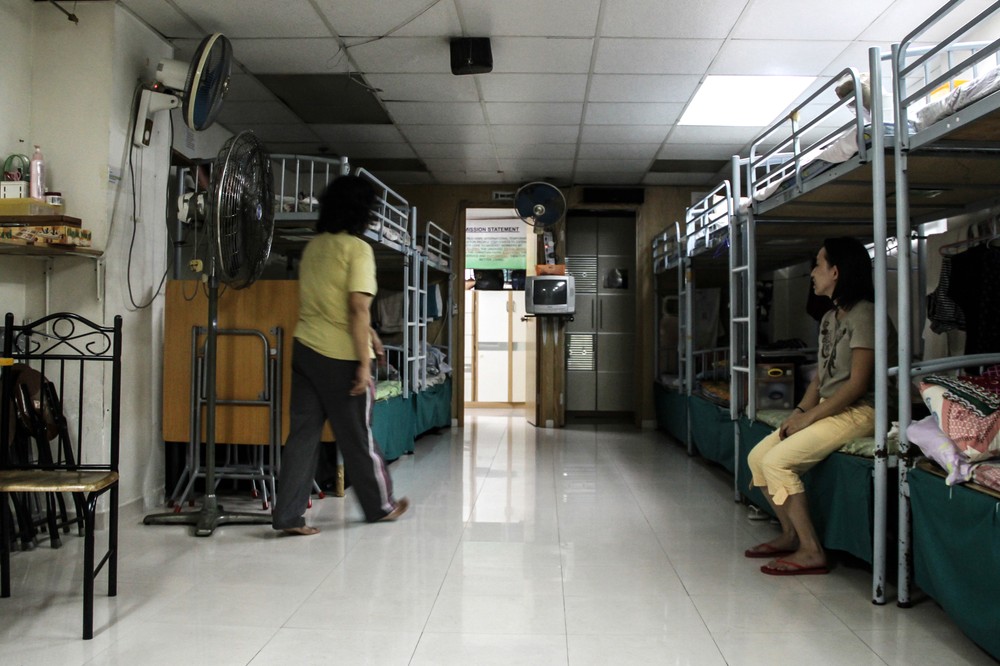
Tanya Bindra /Al Jazeera
Two Filipinos find safety in a shelter for domestic workers in Hong Kong. Their employers had withheld their pay and were told they would have to pay off their recruitment agencies first. According to Hong Kong law, migrant workers must find a new employment contract within two weeks, or else they must leave. This is often not enough time to file and follow up with a legal complaint if the fault of termination lies with an employer or agency.
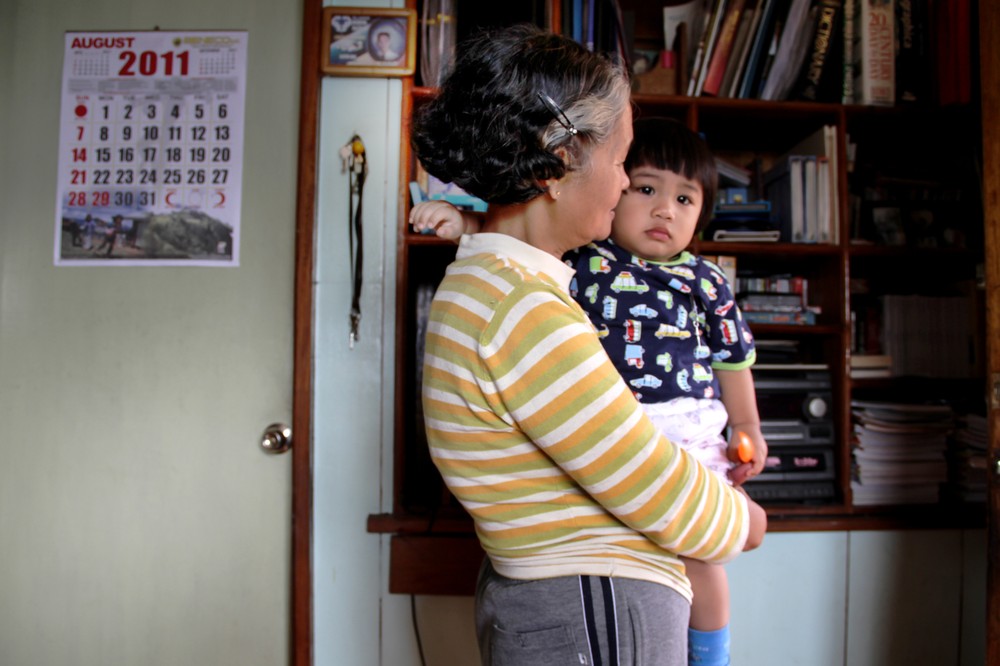
Tanya Bindra /Al Jazeera
Above, Felicitas holds one of her grandchildren at their home in Baguio in the northern Philippines. Felicitas worked in Hong Kong for more than 17 years as a domestic worker to provide for her four children. Now two of her daughters work in Saudi Arabia as domestic helpers, and Felicitas raises her granddaughter who was left behind so her mother could work abroad.

Tanya Bindra /Al Jazeera
Candles are lit in Cotabato City, Mindanao in order to remember those overseas workers that died while working abroad.

Tanya Bindra /Al Jazeera
Migrante International chairperson Garry Martinez protests in Manila as Philippines President Benigno Aquino delivers his State of the Nation address. Migrante International is a migrants rights' network that has criticised the government's inability to reduce widespread unemployment and landlessness, the root cause of out-migration.
|
Tuesday, 18 December 2012
POVERTY: The misery of migrant workers
Subscribe to:
Post Comments (Atom)











No comments:
Post a Comment